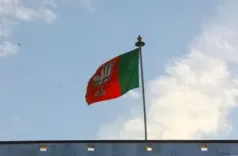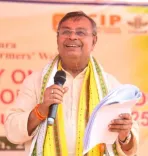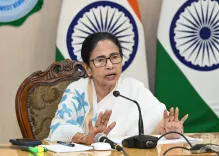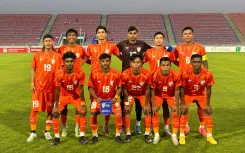How Did PM Modi Transform Yoga into a Global Phenomenon?
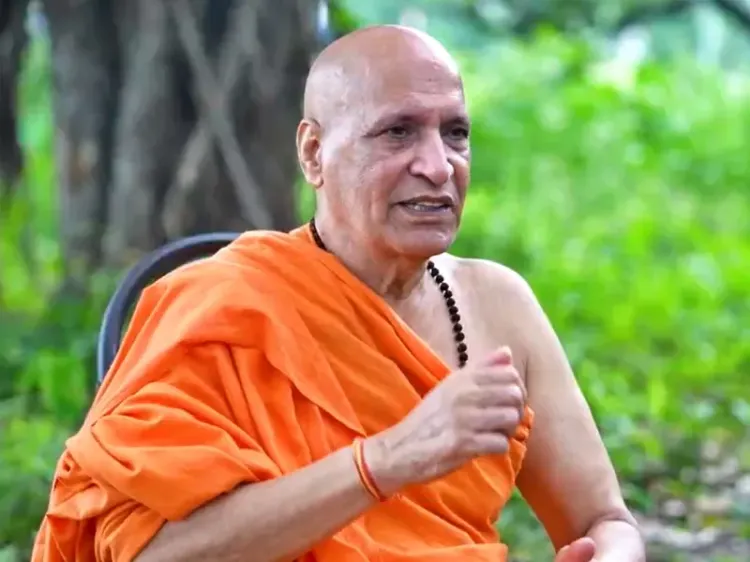
Synopsis
Key Takeaways
- International Yoga Day was proposed by PM Modi in 2014 at the UN.
- 177 countries supported the resolution, highlighting global unity.
- Yoga is not just a practice but a transformative force connecting cultures.
- PM Modi advocates for yoga as a secular remedy for health issues.
- Yoga has evolved into a global movement promoting peace and harmony.
New Delhi, June 21 (NationPress) International Yoga Day stands as a profound testament to Prime Minister Narendra Modi’s unwavering dedication to sharing India’s ancient spiritual legacy with the world.
In 2014, during his address to the United Nations General Assembly, he proposed the concept of designating a day to celebrate yoga. In a remarkable display of international collaboration, 177 nations co-sponsored the resolution, leading to June 21, coinciding with the summer solstice, being officially recognized as International Yoga Day.
This day has evolved into a symbol of health, harmony, and unity, deeply embedded in Indian culture. Swami Dr. Bharat Bhushan, a Padma Shri awardee and esteemed yoga guru, reflects on the importance of Prime Minister Modi’s initiative with great respect on the X handle of ‘Modi Story’.
“Prime Minister Narendra Modi was the first leader to recognize yoga not merely as an activity,” he states, “but as a transformative force — a means to connect individuals across different cultures, continents, and beliefs.”
For Swami Bhushan, Modi’s support for yoga extends beyond ceremonial gestures. It represents a profound commitment to positioning yoga as a bridge between diverse traditions and a common ground for humanity.
Swami Bhushan recounts his personal interaction with the Prime Minister: “I know Prime Minister Narendra Modi as a fellow yoga practitioner — a Yogi; the world knows him as the Prime Minister. When he first visited Saharanpur, his wish to meet me highlighted his humility. He is the first Prime Minister to truly understand that India is not just the birthplace of yoga, but its very essence.”
He continues: “India has never sought expansionism in the traditional sense. Our influence arises not from conquest, but from culture. We embrace the philosophy of ‘Vasudhaiva Kutumbakam’ — ‘the world is one family’ — and ‘Sabka Saath, Sabka Vikas’. This too embodies yoga: the collective advancement of all.”
The Prime Minister’s words during their first meeting left an indelible mark. “Swamiji, we must elevate yoga to its rightful place,” he remarked.
“That single statement unveiled the depth of his vision.”
When the inaugural International Yoga Day was observed, Prime Minister Modi’s message was clear: “True power lies not in weapons or warfare, but in winning hearts.”
Under Prime Minister Modi’s leadership, yoga has thrived beyond mere health and fitness routines.
“Today,” notes Swami Bhushan, “it is embraced by students, military personnel, police officers, professionals, and business leaders.” Importantly, Prime Minister Modi has sought to present yoga as a secular practice. “He once stated,” the guru recalls, “‘Diabetes is secular, heart disease is secular, stress is secular — thus the remedy must also be secular.’”
The journey of International Yoga Day has evolved into a global movement rich in philosophical meaning. Last year, Prime Minister Modi suggested December 21 be recognized as International Meditation Day, aiming to broaden the global understanding of the inner aspects of yoga. As Swami Bhushan affirms: “Such is the determination and clarity of a leader who embodies the path of a yogi.”
From the streets of Saharanpur to the chambers of the United Nations, yoga has emerged as India’s offering of peace and balance to a fragmented world — led by a leader who not only believes in its power but lives by its principles.

